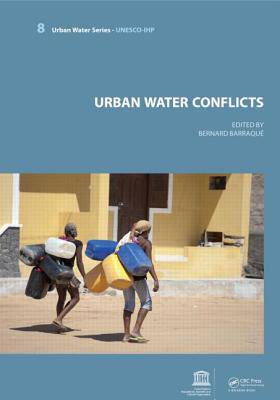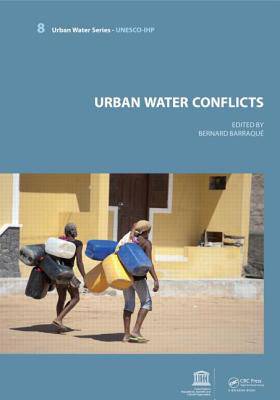
- Afhalen na 1 uur in een winkel met voorraad
- Gratis thuislevering in België vanaf € 30
- Ruim aanbod met 7 miljoen producten
- Afhalen na 1 uur in een winkel met voorraad
- Gratis thuislevering in België vanaf € 30
- Ruim aanbod met 7 miljoen producten
Omschrijving
Urban water conflicts manifested first in Europe in the 19th century and are observed nowadays in various forms throughout the world; in particular, in developing countries. Main causes of these conflicts are characterized by complex socioeconomic and institutional issues related to urban water management. The debate about public water services versus private water supplies is frequently associated with conflicts over water price and affordability. On the other hand, the issue of centralization versus decentralization of water utilities is also often discussed in the context of institutional aspects of urban water management. These issues are intertwined and, thereby, a critical examination of socioeconomic and institutional aspects of urban water management in a holistic way is important for better understanding water conflicts in urban areas.
Urban Water Conflicts - the output of a project by UNESCO's International Hydrological Programme on "Socioeconomic and Institutional Aspects in Urban Water Management" - presents a collection of essays on socioeconomic and institutional aspects of urban water management, focusing on water and sanitation services. The book examines interdisciplinary approaches to understanding and analyzing conflicts that arise from inadequate urban water management. Conflict analysis is addressed in some essays by taking into account economic, environmental and social dimensions of sustainability. The issue of institutional conflicts between different levels of government is also discussed in some case studies.
Specificaties
Betrokkenen
- Auteur(s):
- Uitgeverij:
Inhoud
- Aantal bladzijden:
- 344
- Taal:
- Engels
- Reeks:
Eigenschappen
- Productcode (EAN):
- 9780415498630
- Verschijningsdatum:
- 2/12/2011
- Uitvoering:
- Paperback
- Formaat:
- Trade paperback (VS)
- Afmetingen:
- 168 mm x 244 mm
- Gewicht:
- 566 g

Alleen bij Standaard Boekhandel
Beoordelingen
We publiceren alleen reviews die voldoen aan de voorwaarden voor reviews. Bekijk onze voorwaarden voor reviews.











